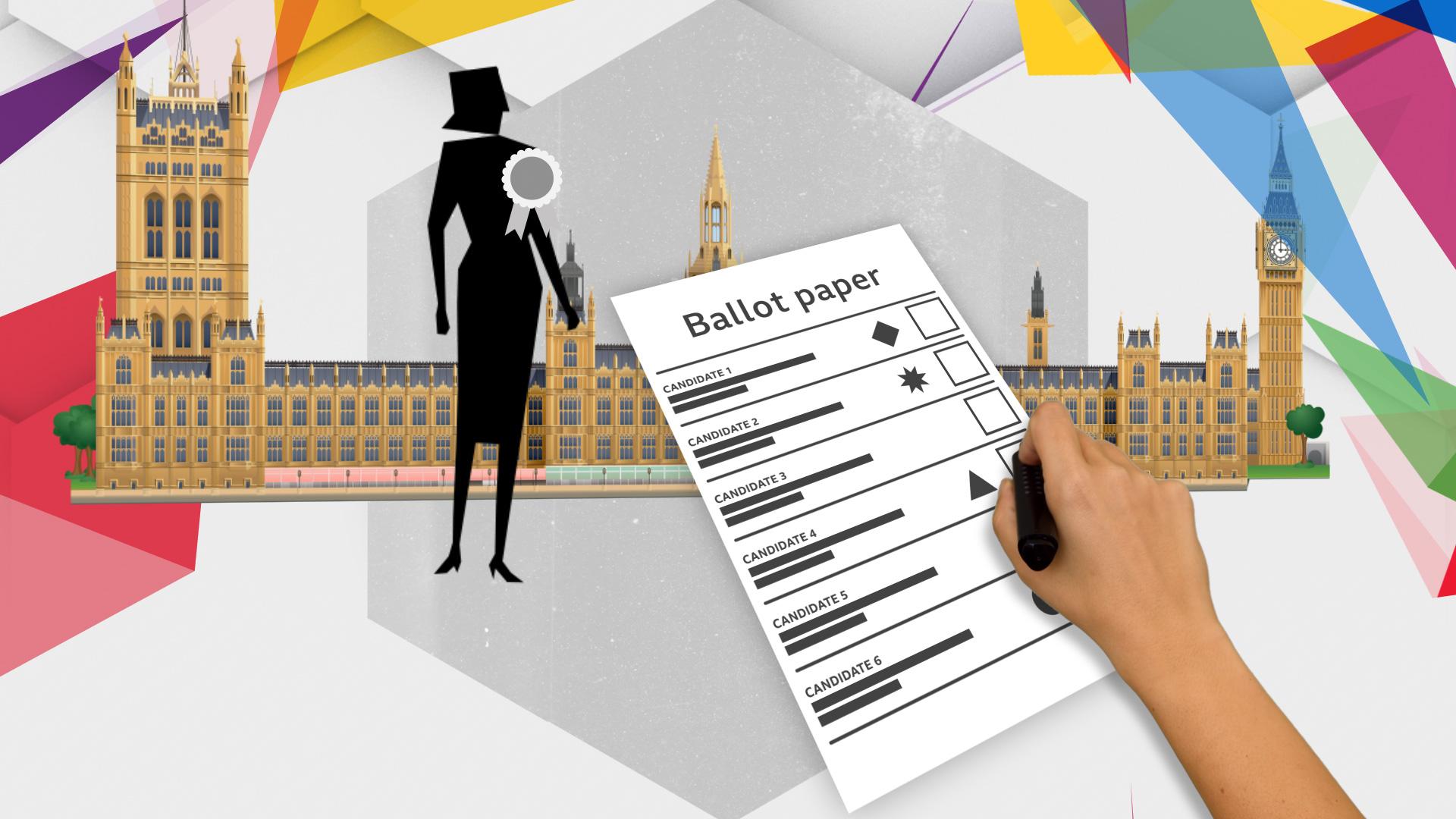General Election 2019: The hidden benefits of registering to vote that aren't to do with politics
- Published

Did you know that registering to vote could help you with buying or renting a house?
Even if you don't vote, there can be some benefits of being on the electoral register.
If you do want to vote in the general election on 12 December, the deadline to register is midnight on 26 November.
Here are some of the ways being on the electoral register (also called the electoral roll) could help you - that are nothing to do with politics.
It could help you get a bank loan
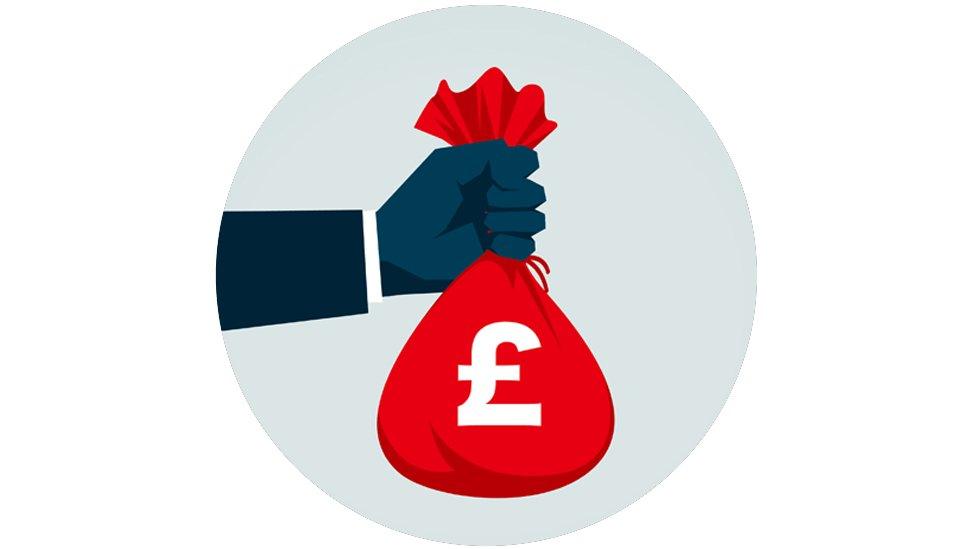
In fact, it can help you in any situation where you get a credit check - buying a car, getting a mortgage or getting a phone contract.
That's because banks and other lenders that check credit scores look through the electoral roll.
It's part of their checks to verify your identity - and your credit score can improve if lenders know you are who you say you are.
It can be particularly useful if you don't have a long credit history, if for example it's the first time you're getting a loan or phone contract.

What are the two different types of electoral roll?
The electoral register lists the names and addresses of everyone who is registered to vote in public elections.
It's used to make sure only people who are eligible to vote can cast their ballot.
It can also be used for things like checking you credit score, law enforcement and calling people for jury service.
The open register is the version of the electoral register which is open to other people.
Businesses or charities might use it for mailing lists and marketing purposes.
It can also be used by landlords to check your identity,

It could help you get a house or a flat
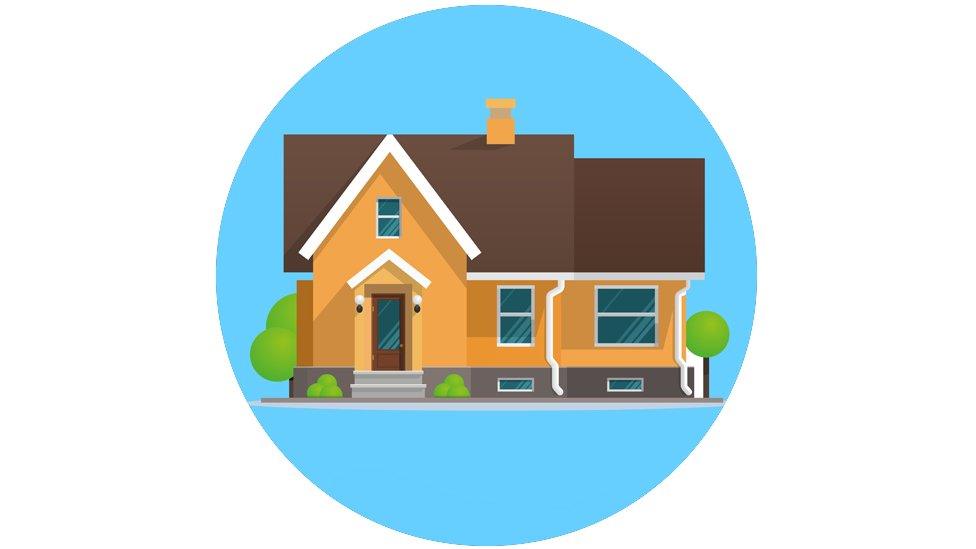
As well as helping with your credit score when applying for a mortgage, being on the open register could help when renting a place.
Landlords might check the open register to help verify who you are.
But remember, anyone can see the open register (for a fee) and it's used for marketing purposes too.
You can opt-out of the open register at any time.
It could also stop you getting angry letters asking for money
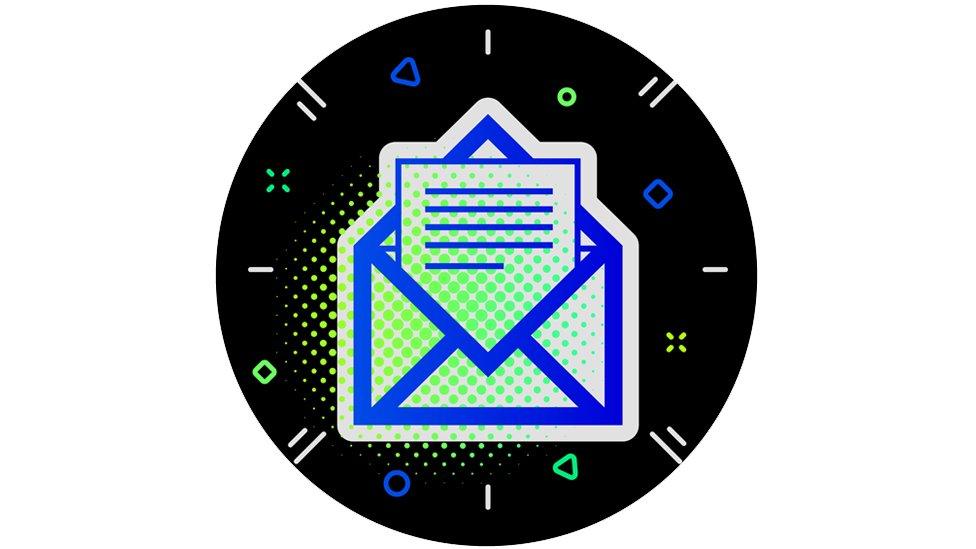
Being on the open register not only confirms who you are and where you live.
It could also be used to check who doesn't live at your address.
If lenders are trying to track down money owed by someone who used to live at your address, they can check the open register.
If they see that person doesn't live at your address any more, they probably won't bother sending letters asking for money to that address.
It could get you a few more Instagram followers
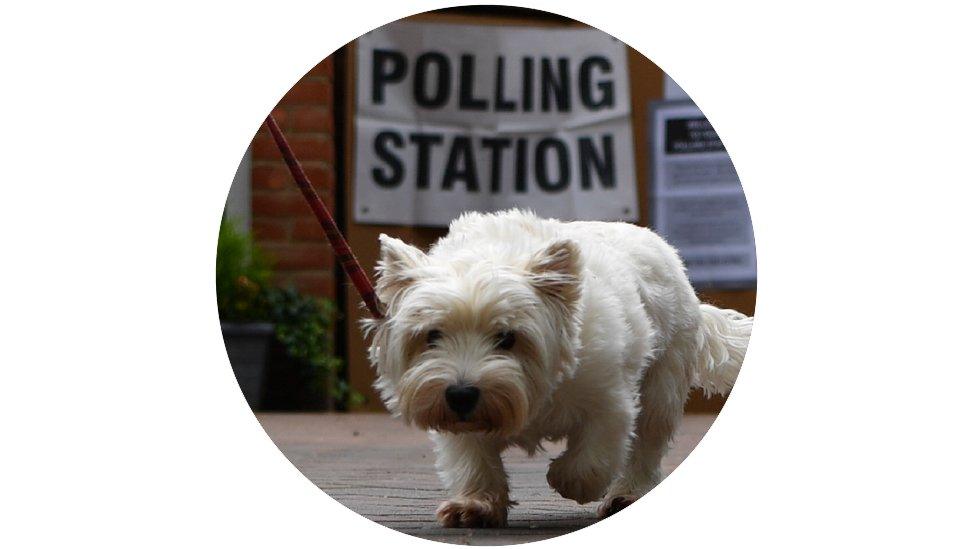
OK, this isn't exactly the most important factor.
But being registered to vote means that - obviously - come polling day, you can go and actually have your say on who runs the country.
And that means going to your polling station and voting.
On the day of the election, expect your social media feed to be filled with one thing - photos of dogs standing outside polling stations.
For some reason, every time there's a vote, #DogsAtPollingStations starts trending.
So if you snap a particularly cute pic of a dog waiting for their owner to vote, you might get a few more followers.
But remember, taking photos of yours or anyone else's ballot paper isn't allowed and most polling stations won't let you take any pictures inside the building.
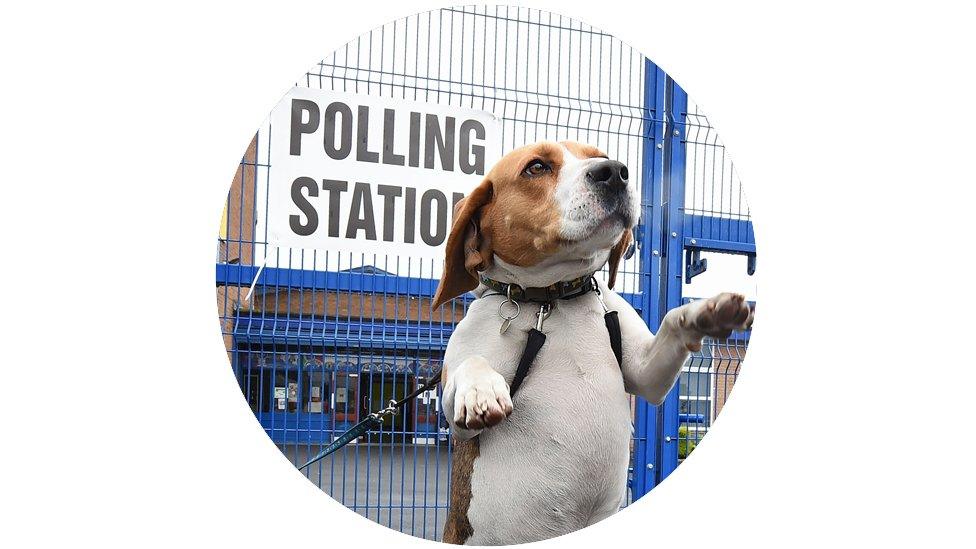
How do you register to vote?
If you do fancy getting on to the electoral roll, signing up takes about five minutes via gov.uk/register-to-vote , external.
You'll need your National Insurance number and - if you're a British citizen living abroad - your passport.
If you're blind you can call your local council's elections officer and ask to be registered.
The deadline to register if you want to vote in these elections is midnight on 26 November.


Follow Newsbeat on Instagram, external, Facebook, external, Twitter, external and YouTube, external.
Listen to Newsbeat live at 12:45 and 17:45 weekdays - or listen back here.
- Published6 December 2019
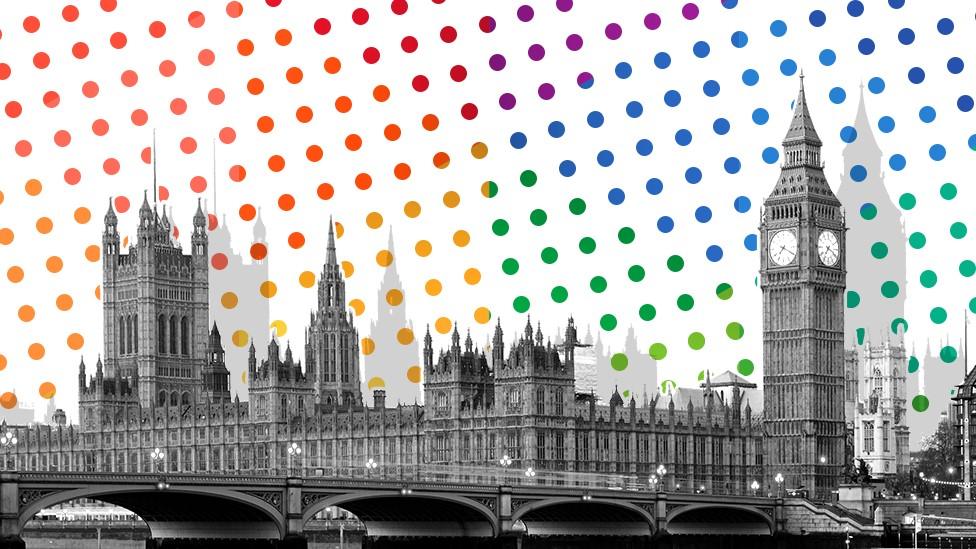
- Published27 November 2019
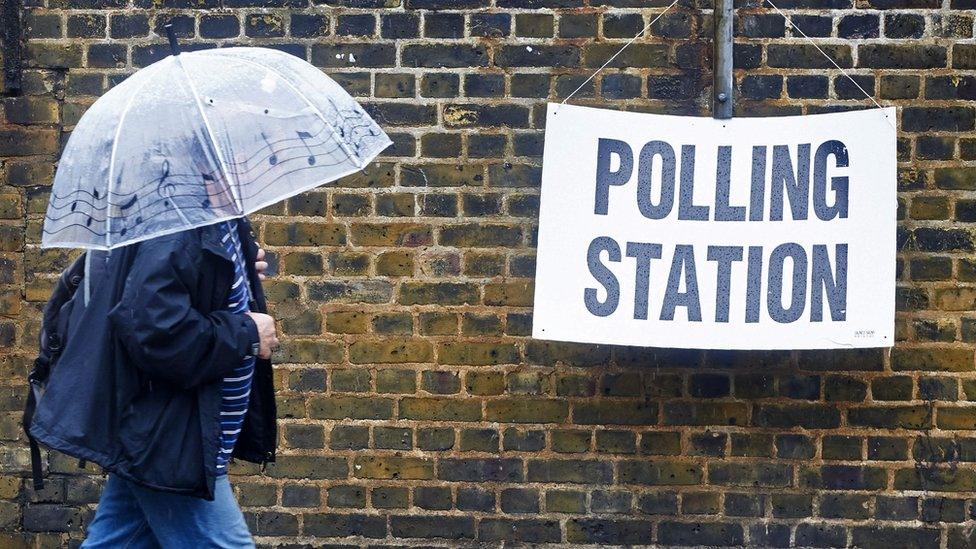
- Published30 October 2019
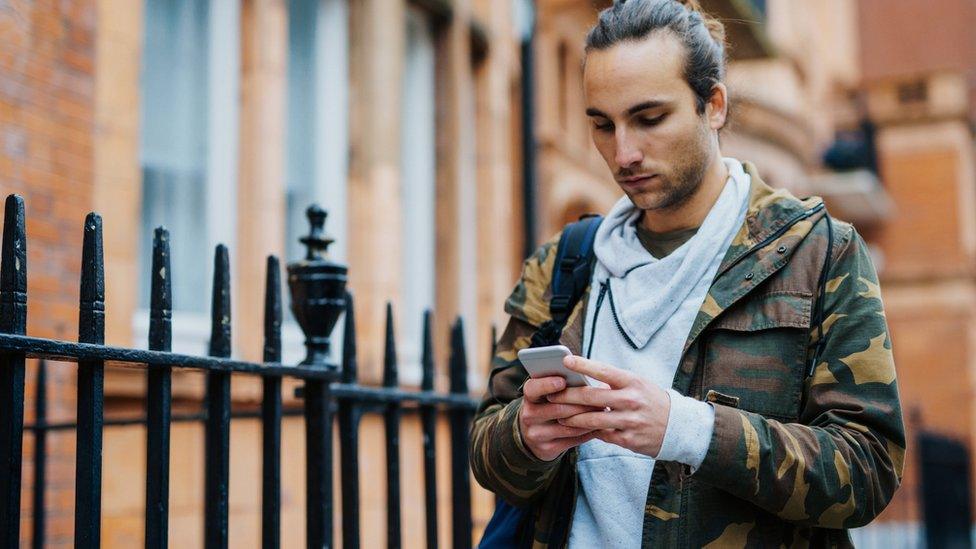
- Published7 November 2019
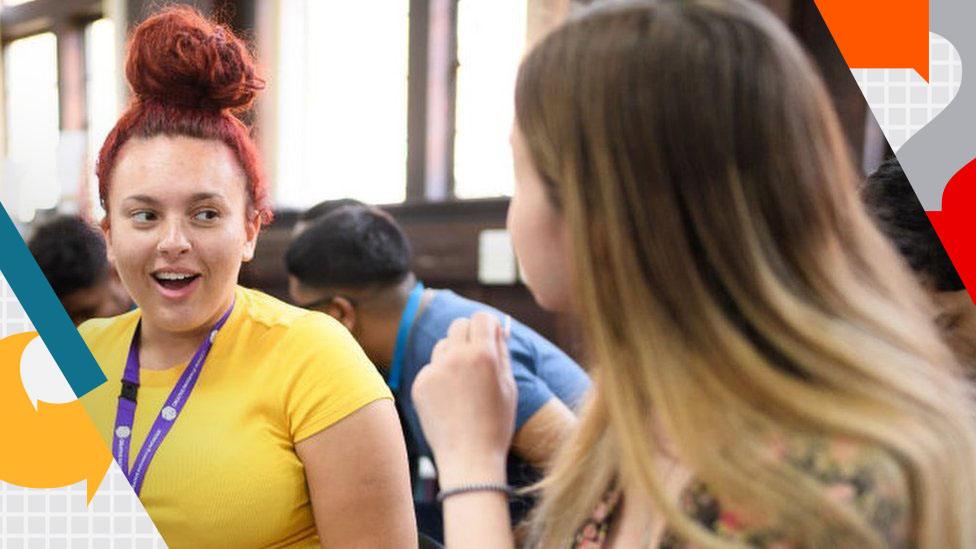
- Published7 November 2019

- Published7 November 2019
